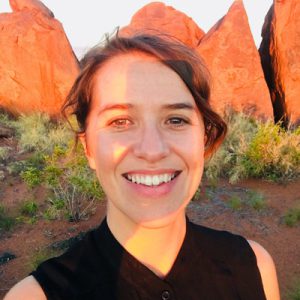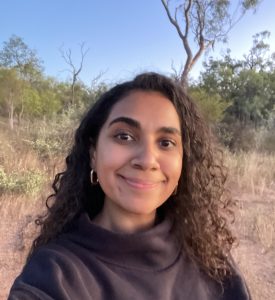
Jesse is a Waanyi man from North-western Queensland, driven by a passion for education and its potential for creating opportunities. With a background in classroom teaching, coaching, school leadership, curriculum development, and Indigenous Knowledges in STEM, Jesse has a range of experiences across the field. Throughout his career, Jesse has undertaken various research activities, including longitudinal studies, co-design projects, stakeholder consultations, and desktop studies. He has held executive positions at Indigenous-led charities the Stronger Smarter Institute and the Aurora Education Foundation. Additionally, Jesse has contributed to the National Indigenous STEM project at CSIRO, designing and delivering culturally responsive STEM teaching programs for middle years education. Jesse has a range of experience within advisory bodies and has been a member of such groups with ACARA, The Smith Family and the Australian Communications Consumer Action Network.

Professor Mark Rose is an Aboriginal man traditionally linked to the Gunditjmara Nation of western Victoria. With a forty-year career in education, Mark has contributed to a broad range of educational settings within the state as well as nationally and internationally. At a state and national level and with community endorsement Mark has served on five ministerial advisory committees.
In 2003-2005, Mark co-chaired the Victorian Implementation Review of Royal Commission into Aboriginal Deaths in Custody. In the last fifteen years Mark has held senior academic potions and in 2020 he became the inaugural Pro-Vice Chancellor at Deakin University. Mark’s commitment to Aboriginal and Torres Strait Islander education is seen in his role in community groups such as the Victorian Aboriginal Education Association Inc (VAEAI) and the raft of statutory bodies he sits on. Mark is often drawn upon for keynotes and media.

Jessica is the Manager of Indigenous Procurement at BHP. She has spent the last 20 years in a mix of community, government and business roles in Indigenous affairs. She was most recently leading Partnerships and Stakeholder Relations at the Indigenous Land and Sea Corporation (ILSC) which she joined after five years at the Business Council of Australia (BCA) where she led increases in Indigenous employment and procurement among large Australian corporations. Jessica also spent five years at Reconciliation Australia as a part of the team that developed the Reconciliation Action Plan program. Jessica has lived and worked in remote Aboriginal communities and across corporate, not-for-profit and government sectors to support Indigenous-led enterprise and opportunity. Jessica lives on Kaurna country with her family and camp dog.

Renee Phillips is a Saibai, Kerema and Daru woman from Zenadth Kes (Torres Strait) and Papua New Guinea. She is a trained Science and Maths high school teacher and a co-founding member of the National Indigenous Youth Education Coalition (NIYEC). Renee's teaching experience has been at an independent Aboriginal and Torres Strait Islander school in Gimuy - Yidinji (Cairns), as well as at a state high school on Ngunnawal and Ngambri country. She has also worked as a Primary Educator and Community Development Officer at Children's Ground on Arrernte country. She now works as the Program and Learning Director at NIYEC.

Allan Dougan is a seasoned leader and strategist with over two decades of experience spanning the education, not-for-profit, and corporate sectors. Currently serving as the Chief Executive Officer of The Australian Association of Mathematics Teachers (AAMT), Allan has a deep understanding of the current educational climate locally and globally as well as organisational governance, financial stewardship, and stakeholder engagement. His leadership has been instrumental in driving significant organisational change, fostering sustainable financial growth, and championing educational initiatives at both national and international levels.
Allan brings a wealth of expertise in education, having worked across public and private schools in Australia and internationally. He has a strong background in mentoring emerging leaders, enhancing organisational culture, and advocating for evidence-informed practices. His track record includes advising on policy, developing strategic educational frameworks, and fostering partnerships that drive innovation.

Gail Barrow is a Nyungar woman with family links to the lands of the Koreng and Wudjari people of the south coast of Western Australia. Both her parents were teachers, with Gail’s father being the first Aboriginal teacher, and Principal, in Western Australia. Gail, her sister and one of their brothers followed their parents into teaching. Gail began teaching in the 1970s and has taught pre-primary and primary school aged students in the southwest, the Goldfields, the Kimberley and the metropolitan areas of Western Australia. Since leaving the classroom, Gail has: - supported the work of Aboriginal and non-Aboriginal staff of the WA Department of Education (DoE) through staff training and professional learning programs - chaired the Course Advisory Committee for the Aboriginal and Intercultural Studies course (School Curriculum and Standards Authority of WA) - been a member of the academic staff at UWA and ECU, and - participated as a member of the Aboriginal Reference Group for the Australian Curriculum, Assessment and Reporting Authority (ACARA) Gail retired from the public service in 2018 but continues to assist schools to: - develop partnerships with Aboriginal families and the community, - create inclusive learning environments for Aboriginal students, - develop understandings of Aboriginal cultures, histories and perspectives in contemporary society, through cultural competency workshops, and - appreciate the role schools can play in addressing racism in ways which build the abilities of all students to challenge racism and racist practices.

Rachael Whitney-Smith is the Curriculum Specialist for Mathematics at the Australian Curriculum, Assessment and Reporting Authority (ACARA) and would like to acknowledge that she lives and raises her family on Noongar country in the Gnaala Karla Booja region of Western Australia.Rachael coordinated the development and review of the F–10 Australian Curriculum: Mathematics and collaborated with Chris Matthews and Caty Morris to develop content elaborations for the national curriculum that assist teachers to meaningfully teach mathematics through a variety of rich connections to Aboriginal and Torres Strait Islander Histories and Cultures. She is an active member on the ACARA Reconciliation Action Plan (RAP) working group, providing support to the organization in terms of reconciliation. Rachael has worked as a Mathematics consultant F-12, a professional officer for the Australian Association of Mathematics Teachers (AAMT) and the Executive Officer for the Mathematical Association of Western Australia (MAWA). She has also previously participated in the Aboriginal Tutorial Assistance Scheme (ATAS) and previously worked as a Secondary Mathematics teacher in NSW and WA, and head of Department (Mathematics).
We acknowledge the Traditional Custodians of the Lands on which we work and live, and recognise their continuing connection to land, water and Community. We also pay our respects to Elders past, present and emerging.
© Aboriginal & Torres Strait Islander Mathematics Alliance. All Rights Reserved 2015 - 2023